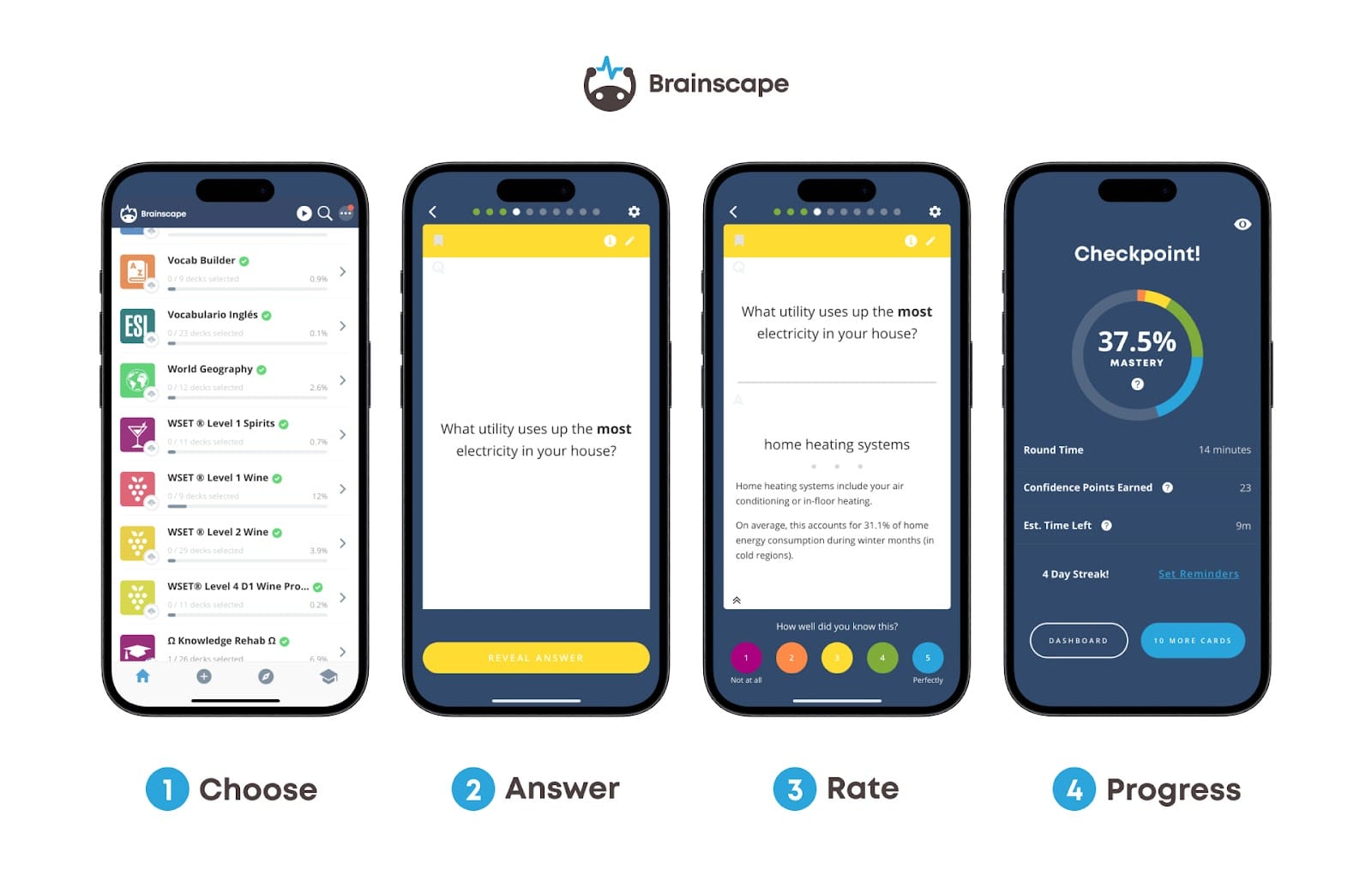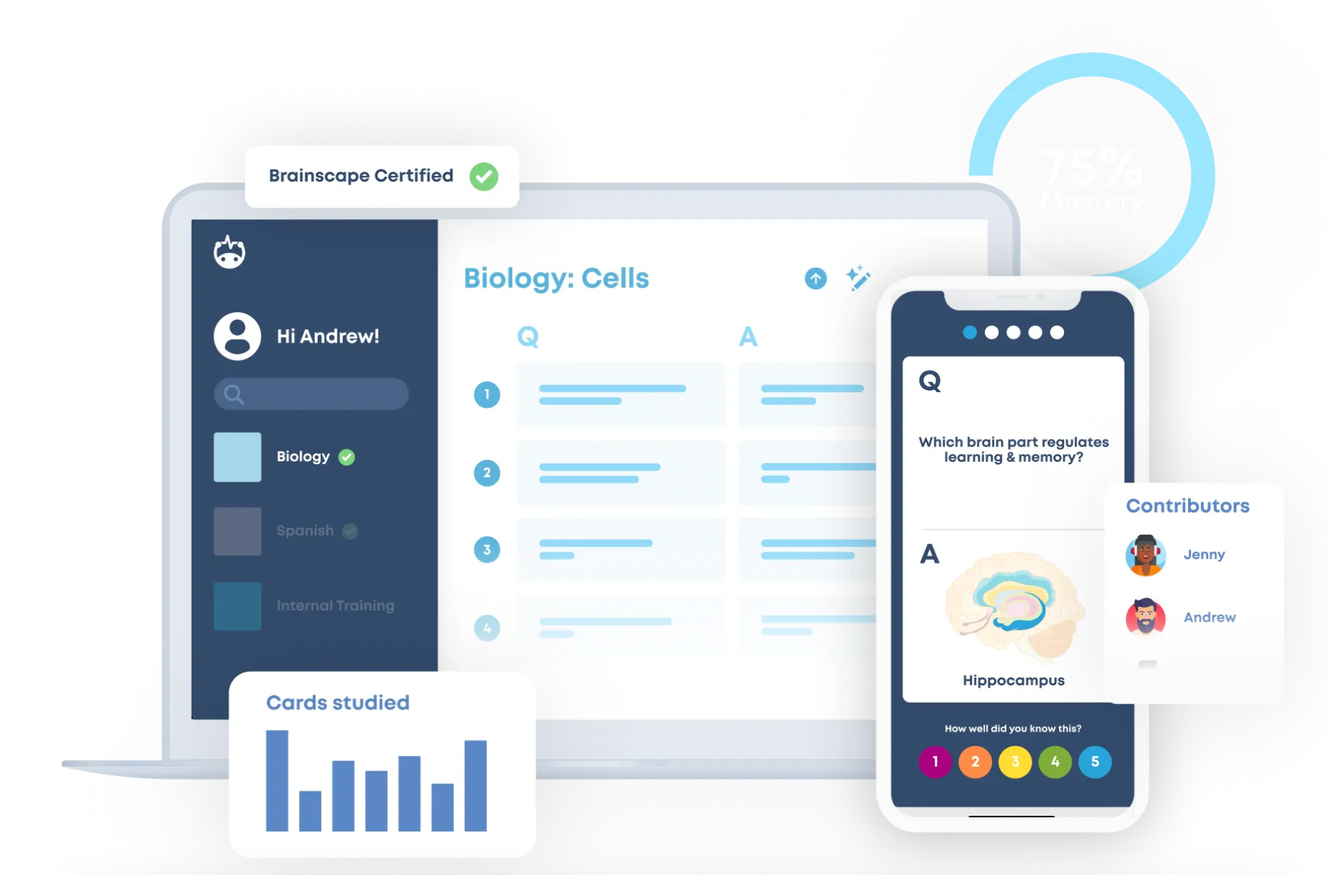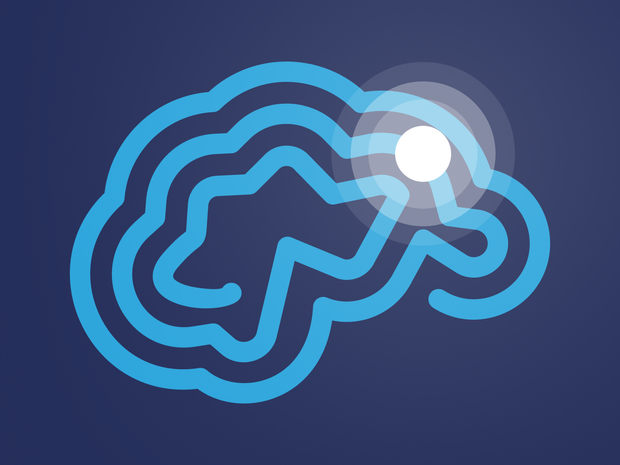In a world bursting at the seams with kaleidoscopic stimuli, even the most focused and “inner peace” savvy among us have trouble paying attention and controlling our impulses every once in a while.
Today's academic environment forces us to sit still and focus our minds on information that is almost never as stimulating as all the colors, punchy stories, flashing images, and pleasing sounds that are a short phone tap away.
Now, throw into the mix a chronic affliction characterized by pervasive and persistent difficulty in concentrating. Attention-deficit/hyperactivity disorder (ADHD) is a neurodevelopmental disorder affecting about 10% of school-age children, three-quarters of whom will take the symptoms with them into college and beyond.
The question is—whether you've been officially diagnosed with ADHD or not—how can you overcome your challenges and develop a disciplined study routine? In this article, we'll provide a science-backed guide to maximizing your study time.
TL;DR: ADHD and Academic Success
- ADHD is not a disadvantage; it’s an evolutionary edge. ADHD brains are wired for curiosity, adaptability, and spotting the unexpected—traits that can lead to incredible success with the right strategies.
- Success is about adaptation, not limitation. From daily study habits to conquering test anxiety, small changes can make a huge difference.
- Digital flashcards (with spaced repetition) are a powerful and effective study tool for people with ADHD.
- Proven strategies for studying with ADHD include: starting early, breaking material into bite-sized pieces, minimizing distractions, and leveraging active learning techniques like digital flashcards.
- ADHD doesn’t define you—it’s your superpower. Like Simone Biles, Richard Branson, and other high achievers with ADHD, you can use your unique brain wiring to thrive.
Before You Start: Absolve Yourself of Any Shame
People with ADHD can be misunderstood because they don’t tend to “fit in” well with society’s rigidly disciplined structures. But ADHD can be an advantage.
Some of the most innovative and successful people in history—including Walt Disney, Will Smith, John F. Kennedy, Simone Biles, Emma Watson, Zooey Deschanel, Richard Branson, and Albert Einstein—used their ADHD as an asset on the way to the top.
Sure, today’s classrooms and workplaces might not always align perfectly with how your brain operates, but with a few strategies and tools, you can turn that edge into your greatest asset.
Here are tips on how you can remain organized, calm, and thriving while studying with ADHD.
Tips on How to Study with ADHD
1. Know What You’re Up Against
If you have ADHD, your attention span is a precious resource. You need to plan ahead in order to allocate it deliberately.
The best approach to this is to (1) create an outline of your study materials using your textbook and class intel, and (2) ask your teacher for guidance.
Show your teacher your outline and ask if you’ve missed anything important, if you’ve correctly captured the focus of the exam in your study plan, and if there’s anything redundant you might be wasting your time on.
You should also ask about the exam format: is it multiple choice? Will there be essay questions? Or a mix of short-answer questions and essays?
Learn as much as you can about your challenge so you can tailor and focus your studying.
2. Start Studying Early
You’re already hyper-sensitive to anxiety and distraction. So, the worst thing you can do is put off your studying for the last minute, causing pre-exam anxiety. Give yourself plenty of time to prepare for tests and exams.
Optimally, you should consolidate your learning throughout the semester by pre-reading the material before lectures, simplifying your notes, or making flashcards, and reviewing the information afterward, within 24-48 hours of each lecture.
It sounds like a lot of work but this consistent dedication to learning ensures that you approach exam time having already mastered most of the material. This leaves you in a much better position than your peers, who probably have to re-learn (and cram) the entire course from scratch because they’ve forgotten most of it.
Having said this, you should also give yourself several weeks before the date of your exam to study. You simply don't want to stress about whether you’re going to get everything done in time.
Check out our free study planner templates to set yourself up for success!
3. Develop Steady Study Habits
As we touched on in the point above, make study a habit.
Study regularly and in a similar, consistent way several times a week, even if it’s just for 5 or 20 minutes. Brainscape's adaptive flashcard app is a great way to study in short, powerful sessions.

Bored while waiting in line? On a train? Doing laundry? With just a few seconds, you can open a flashcard app like Brainscape or Mochi and test your active recall immediately.
With practice, your daily study will become “just another thing you do”, like getting up in the morning or brushing your teeth at night.
4. Remove Distractions
Removing distractions for ADHD is especially important. Identify what distracts you and what environment helps you to focus.
For example, some people tend to get more distracted in quiet environments with the occasional noise, such as the shuffling of pages or a person walking by (library) than in busy environments with constant noise and action (coffee shop).
Figure out which environment works best for you and schedule regular study sessions there.
Then, prepare your distraction-free space:
- Set out all the study materials, stationery, coffee, water … whatever you need to learn. You shouldn’t have to get up for anything once you’ve started.
- If you’re at home, politely ask your family, housemates and/or “bae” to leave you alone and make minimal noise for the duration of your study session.
- Turn your phone to silent and disable notifications on all your devices. Consider even keeping it in another room.
- If you tend to procrastinate when studying, take care of all those niggly little tasks and responsibilities that can distract you (emails, bills, etc.) before you sit down to study.
- If you do think of important tasks and emails that require action while studying, write them down on a to-do list to do afterward. They can wait.
5. Break Your Studying Down into Manageable Bites
Having ADHD isn’t necessarily conducive to studying for several hours in a row (unless you absolutely love the subject and have a tendency to hyper-focus).
You know how long/short your attention span is, so tailor your study sessions according to your attention span—even if it is only 10-20 minutes. Then, break the material down into manageable, bite-sized pieces and create a daily schedule for study.
Again, digital flashcards are the perfect tool for this. With flashcard rounds of only 10 cards, you can literally squeeze in 5 minutes of studying wherever you are and whenever the motivation hits (seriously: exploit those bursts of motivation)!
And if you find yourself “in the zone” and want to continue with another 10 cards (and then another, and so on), keep going!
7. Leverage a Digital Flashcard App

The very nature of digital flashcards aligns perfectly with people who struggle to concentrate and focus, offering a quick, convenient, and effective way to tap in and out of your studies.
Apps such as Anki and Brainscape work with your brain’s hardwiring to help you learn more effectively. No matter where you are or how much time or attention bandwidth you have to spare, you can flip open the app on your device and spend 1, 2, 5, or 60 minutes immersed in the world of your subject.
Looking for an immediate action plan? Check out our guide on why flashcards are the ultimate steady weapon for learners with ADHD.
Some Final Words on ADHD and Test Success
In a world where distraction reigns supreme, learning to harness the unique power of an ADHD brain is nothing short of a superpower move. With the right mindset and tools, ADHD doesn’t have to be a roadblock—it can be a launchpad.
This guide has shown that effective study habits aren’t about forcing yourself to sit still for hours; they’re about working with your brain, not against it. From minimizing distractions to studying in bite-sized bursts, and from creating daily habits to using spaced repetition with flashcards, these science-backed study tips for ADHD can help anyone—diagnosed or not—turn chaos into focus and information into mastery.
Digital flashcard apps are especially well-suited for learners with ADHD, offering quick wins, on-the-go access, and a method that mirrors how your mind naturally absorbs information. But at the heart of all these strategies is a message of self-compassion and empowerment: ADHD doesn’t make you less capable—it makes you different. And different can be brilliant.
So whether you’re prepping for finals or picking up a new skill, let these study tips for ADHD guide you toward a smarter, saner, and more successful study routine.
Additional Reading
- Are flashcards helpful for people with ADHD?
- Does Music Really Help You Study Better?
- How to Cure Insomnia (Without Drugs)
Sources
CHADD. (2024, July 12). Understanding ADHD - CHADD. Children and Adults With Attention-Deficit/Hyperactivity Disorder (CHADD). https://chadd.org/understanding-adhd/
Cheila. (2024, April 4). How to Study Efficiently with ADHD: 7 Tips to Boost Focus & Motivation. ADDA - Attention Deficit Disorder Association. https://add.org/tips-for-studying-with-adhd/
Danielson, M. L., Bitsko, R. H., Ghandour, R. M., Holbrook, J. R., Kogan, M. D., & Blumberg, S. J. (2018). Prevalence of Parent-Reported ADHD Diagnosis and Associated Treatment among U.S. children and Adolescents, 2016. Journal of Clinical Child and Adolescent Psychology, 47(2), 199–212. https://doi.org/10.1080/15374416.2017.1417860
Drake Institute. (2024). Sugar consumption & ADHD: Does sugar make ADHD worst? | Drake Institute. Drake Institute of Neurophysical Medicine. https://www.drakeinstitute.com/sugar-consumption-and-adhd#:~:text=The%20sugar%20in%20candy%2C%20soft,can%20make%20ADHD%20symptoms%20worse.
Goldman, L. (2021, March 15). ADHD and evolution: Were hyperactive Hunter-Gatherers better adapted than their peers? Healthline. https://www.healthline.com/health/adhd/evolution#1
Osborne, J. B., Zhang, H., Carlson, M., Shah, P., & Jonides, J. (2023). The association between different sources of distraction and symptoms of attention deficit hyperactivity disorder. Frontiers in Psychiatry, 14. https://doi.org/10.3389/fpsyt.2023.1173989
Shoot, B. (2021, June 23). The Stars Who Aligned ADHD with Success. ADDitude. https://www.additudemag.com/successful-people-with-adhd-learning-disabilities/
Turk, T. N., & Campbell, D. A. (2002). The Academic Struggles of a Gifted Student with ADHD from Preschool to College. Gifted Child Today Magazine, 25(4), 48–65. https://doi.org/10.4219/gct-2002-83
Volkow, N. D., Wang, G., Newcorn, J. H., Kollins, S. H., Wigal, T. L., Telang, F., Fowler, J. S., Goldstein, R. Z., Klein, N., Logan, J., Wong, C., & Swanson, J. M. (2010). Motivation deficit in ADHD is associated with dysfunction of the dopamine reward pathway. Molecular Psychiatry, 16(11), 1147–1154. https://doi.org/10.1038/mp.2010.97
